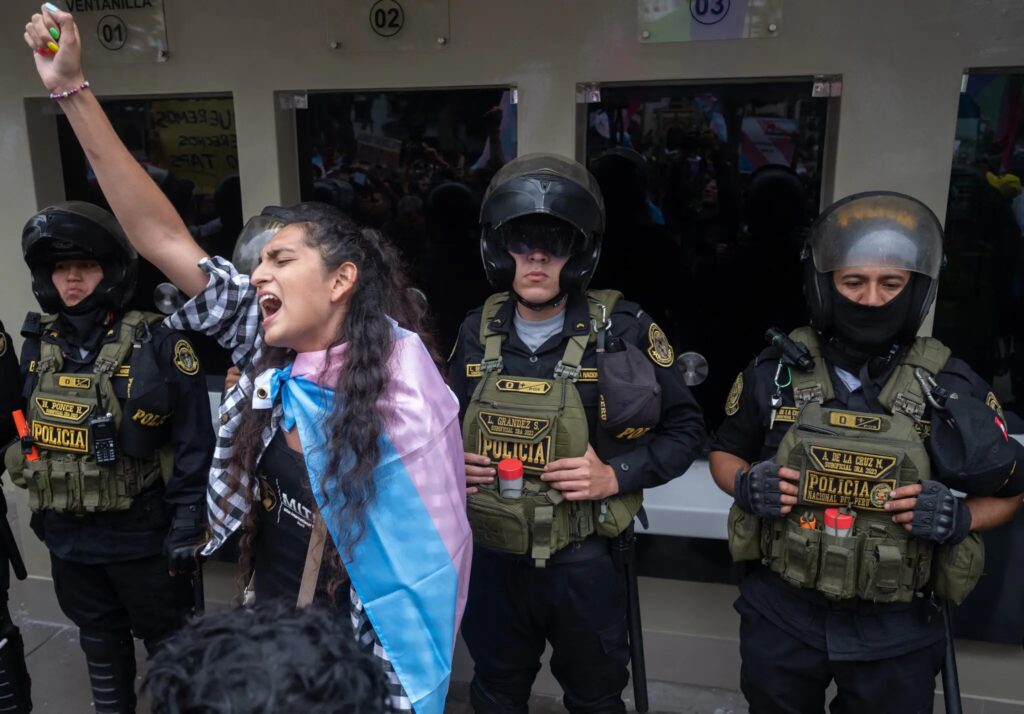According to government representatives, the rule was created to increase transgender people’s access to mental health services. Protesters claim it will lead to more discrimination. Without any fanfare, the bulletin was published in Peru’s official government publication, which also publishes new laws and regulations. Health officials in Peru claim they were unaware of the reaction it would cause.
They claim they wished to increase transsexual Peruvians’ access to privately funded mental health care. Therefore, transgender identification was described as a “mental health problem” in the official edict.
However, as word of the regulation spread, the nation’s L.G.B.T.Q. community and advocates became indignant.
Critics argued that the ruling was just another setback for a society that forbids gay marriage and civil unions, does not recognize transgender identity legally, does not have legislation acknowledging hate crimes, and where trans Peruvians claim they are frequently the targets of violence and prejudice.
Human Rights Watch researcher on LGBTI rights in Latin America Cristian González Cabrera said, “What they’re doing is labeling an entire community as sick.”
However, health officials claimed that they had not meant to harm transgender persons and that the outcry and criticism was the consequence of a misunderstanding.
This month, the Peruvian government expanded the list of medical illnesses that require coverage by both public and commercial insurance in Peru by including seven diagnostic codes from the World Health Organization’s medical categorization system.
However, the legislation used terminology from an antiquated W.H.O. categorization system that described “gender identity disorder” and “transsexualism” as “mental and behavioral disorders.”


The categories “gender incongruence of childhood” and “gender incongruence of adolescence and adulthood” were substituted with “gender incongruence of childhood” in a revised version of the W.H.O. system that went into effect in 2022 under the heading “Conditions Related to Sexual Health.”
“Current knowledge that trans-related and gender diverse identities are not conditions of mental ill-health, and that classifying them as such can cause enormous stigma,” the World Health Organization states, is what motivated the revision.
In an interview, Peruvian health officials stated that although they were aware of the W.H.O.’s modifications, bureaucratic roadblocks had delayed their adoption and incorporation of the new rule.
The head of communications for Peru’s Health Ministry, Henry Horna, stated, “It is a path that we have already started to walk,” although he did not specify how long the procedure would take. Thus, the current classification is still in effect for the time being.
The ministry issued a statement in reaction to the controversy, emphasizing that it opposes discrimination and that “gender and sexual diversity are not illnesses.”
According to Mr. Horna, “the issue has clearly resulted from a misinterpretation of the rule’s meaning.” “Legal language, cold language, and technical language are used in the writing of the rules.”
However, due to discriminatory employment practices by many private-sector firms, trans activist Leyla Huerta noted that most trans Peruvians do not care about access to private insurance.
She claimed that the stigmatization caused by the terminology employed in the government rule outweighed any benefits for the trans community.
According to activists and experts, labeling transgender individuals as mentally ill might pave the way for some conservative organizations to advocate for the highly discredited practice of conversion therapy, which aims to alter a person’s sexual orientation or gender identity.
However, medical professionals cited earlier government directives that discouraged conversion treatment and declared that transgender identification was not a mental disorder.
The current debate is only one of many battles to advance health care and rights for LGBT people throughout Latin America, a region where there is a high rate of violence against LGBT individuals.
However, despite this setting, Peru stands out because, according to Mr. González, its legal system gives gay and transgender persons virtually no rights.
Other South American nations including Brazil, Colombia, Chile, Argentina, and Ecuador have long permitted same-sex unions. Mr. González declared, “Peru is miles behind its South American neighbors.”
In testimony given to the Peruvian Congress last year, the head of the government’s human rights agency described homosexuality as “deformities that must be corrected.”
Additionally, a transgender prostitute was shot thirty times and taken in Lima last year; the murder was caught on camera. There has only been one arrest to yet, and no trial has taken place.
The Peruvian government does not keep track of incidents of prejudice or violence directed against transgender persons.
However, a 2021 research conducted by More Equality, a human rights organization in Peru, revealed that out of 323 L.G.B.T.Q. Peruvians, 83 percent reported having been the victim of verbal or physical violence, and 75 percent reported facing prejudice.
Psychotherapist Alexandra Hernández, the president of More Equality, stated that although she thought some Health Ministry officials had good intentions when they issued this guideline, they did not confer with specialists in L.G.B.T.Q. mental health.
Journalist and trans activist Gianna Camacho García stated, “They say it was beneficial for us.” “In actuality, it was a small comfort in comparison to the harm that labeling us as individuals with mental illnesses causes to other areas or facets of our lives.”




